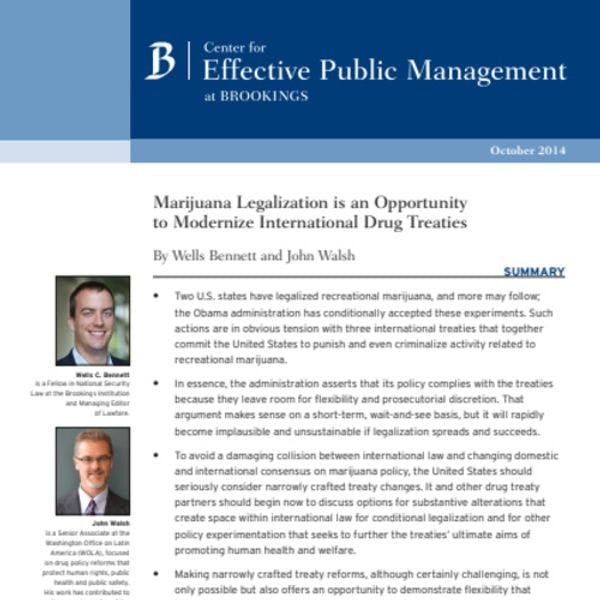Légalisation du cannabis: une opportunité de moderniser les traités internationaux sur la drogue
La légalisation du cannabis récréatif est en tension avec les traités onusiens de contrôle des drogues. Elle présente aussi une opportunité de moderniser les conventions pour les adapter aux nouvelles réalités. Pour en savoir plus, en Anglais, veuillez lire les informations ci-dessous.
Abonnez-vous à l'Alerte mensuelle de l'IDPC pour recevoir des informations relatives à la politique des drogues.
Two U.S. states have legalized recreational marijuana, and more may follow; the Obama administration has conditionally accepted these experiments. Such actions are in obvious tension with three international treaties that together commit the United States to punish and even criminalize activity related to recreational marijuana.
In essence, the administration asserts that its policy complies with the treaties because they leave room for flexibility and prosecutorial discretion. That argument makes sense on a short-term, wait-and-see basis, but it will rapidly become implausible and unsustainable if legalization spreads and succeeds.
To avoid a damaging collision between international law and changing domestic and international consensus on marijuana policy, the United States should seriously consider narrowly crafted treaty changes. It and other drug treaty partners should begin now to discuss options for substantive alterations that create space within international law for conditional legalization and for other policy experimentation that seeks to further the treaties’ ultimate aims of promoting human health and welfare.
Keep up-to-date with drug policy developments by subscribing to the IDPC Monthly Alert.
